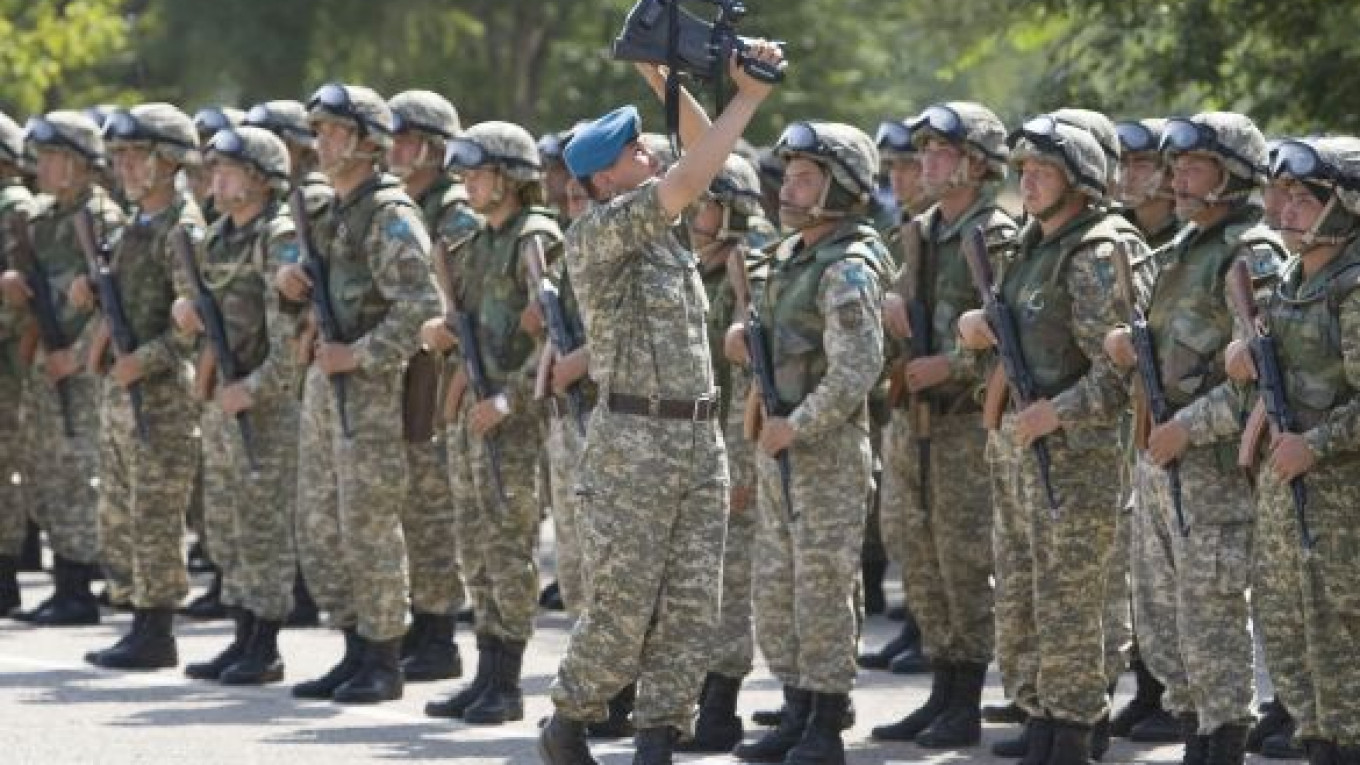ILI MILITARY RANGE, Kazakhstan — About 50 U.S. and British troops joined more than 1,000 Kazakh soldiers on Monday for a two-week military exercise, a sign of NATO's efforts to win clout in Russia's Central Asian backyard.
The eighth annual Steppe Eagle program aims to train Kazakh troops for future deployment with NATO peacekeepers.
"We will leave here better comrades and with our vision for the future reinforced," Lieutenant General William Webster, commander of U.S. ground forces in Central Asia and the Middle East, said at the opening ceremony.
After the ceremonial raising of the Kazakh, U.S. and British flags at the Ili military range, 50 kilometers north of Kazakhstan's largest city Almaty, troops marched past to the accompaniment of music from a 10-member military brass band.
The United States is represented at the training exercise by about 45 servicemen. Britain sent five participants and will provide an assessment team to review the Kazakh troops at the end of the exercise.
"As chairman of the OSCE, Kazakhstan has pushed forward issues of enhancing European security, which extend far beyond the boundaries of Europe itself," said Saken Zhasuzakov, first deputy defense minister and Kazakh armed forces chief of staff.
Kazakhstan, which covers an area five times the size of France, this year holds the rotating chair of the Organization for Security and Cooperation in Europe, a European security watchdog that includes both NATO countries and Russia.
The United States is vying with Russia for influence in Central Asia, a region bordering Afghanistan and Iran that the Kremlin sees as within its sphere of influence.
Washington operates an important air base in neighboring Kyrgyzstan that supplies its troops in Afghanistan, and relies on other Central Asian states for ground shipments of supplies.
So far, only small numbers of Kazakhs have participated in noncombat roles in Iraq. British and U.S. servicemen said Kazakh troops were unlikely to be deployed in Afghanistan because of historical links. But they said future deployments in places like Kosovo, Darfur and Western Sahara would be possible.
A Message from The Moscow Times:
Dear readers,
We are facing unprecedented challenges. Russia's Prosecutor General's Office has designated The Moscow Times as an "undesirable" organization, criminalizing our work and putting our staff at risk of prosecution. This follows our earlier unjust labeling as a "foreign agent."
These actions are direct attempts to silence independent journalism in Russia. The authorities claim our work "discredits the decisions of the Russian leadership." We see things differently: we strive to provide accurate, unbiased reporting on Russia.
We, the journalists of The Moscow Times, refuse to be silenced. But to continue our work, we need your help.
Your support, no matter how small, makes a world of difference. If you can, please support us monthly starting from just $2. It's quick to set up, and every contribution makes a significant impact.
By supporting The Moscow Times, you're defending open, independent journalism in the face of repression. Thank you for standing with us.
Remind me later.


